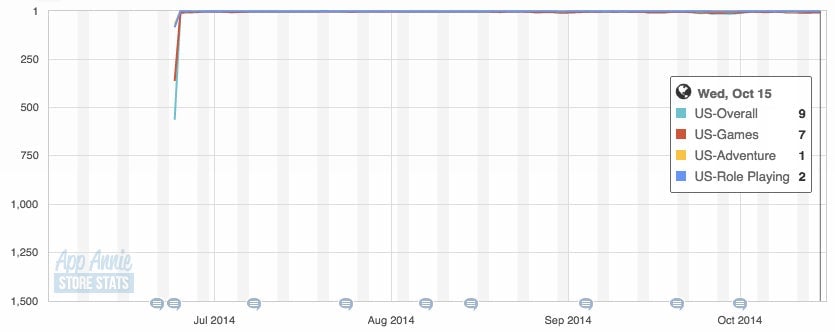Blame Kim Kardashian for the coming avalanche of celebrity-themed gaming apps
One of the most popular games on both iPhone and Android phones right now is a Kim Kardashian simulator. It’s called Kim Kardashian: Hollywood. The objective is to work your way up the rungs of fame until you’ve made it to the top.

One of the most popular games on both iPhone and Android phones right now is a Kim Kardashian simulator. It’s called Kim Kardashian: Hollywood. The objective is to work your way up the rungs of fame until you’ve made it to the top.
That’s certainly worked for the game: Since its launch in June, it has remained in the top 10 highest grossing apps on the Apple app store, and among the top 20 on the Android store. The game’s selfie-taking, party-going challenges reflect Kardashian’s public persona.
It has raked in $51 million in revenue, according to Superdata, a gaming research firm. Kim Kardashian: Hollywood is not a success in the mold of Clash of Clans, Candy Crush Saga, or Angry Birds, which can make between $1 million and $3 million a day. But it is firmly at the top of the second tier of popular mobile games.

The success of the game will drive a shift in the mass market, says Joost van Dreunen, who heads Superdata. One way for games publishers to turn around titles quickly without putting too much marketing into them is to license a title, say from a TV show or an old movie, and theme the game around that. But if it is possible to convince a celebrity to participate—and to promote the game—that gives publishers a readymade marketing channel without needing to pour huge amounts of money into it. The celebrity typically receives royalties over and above her fee.
Van Dreunen expects games publishers to try to recreate the Kardashian’s success. (They have not always succeeded.) The trend will be particularly big in emerging markets, he says, noting that several Indian celebrities have already been signed up by investors.
Indian celebrities sell everything from low-priced soap to high-end Swiss watches; their names are also used to promote vaccinations, and raise awareness for social causes. A mobile game will not be a giant leap.